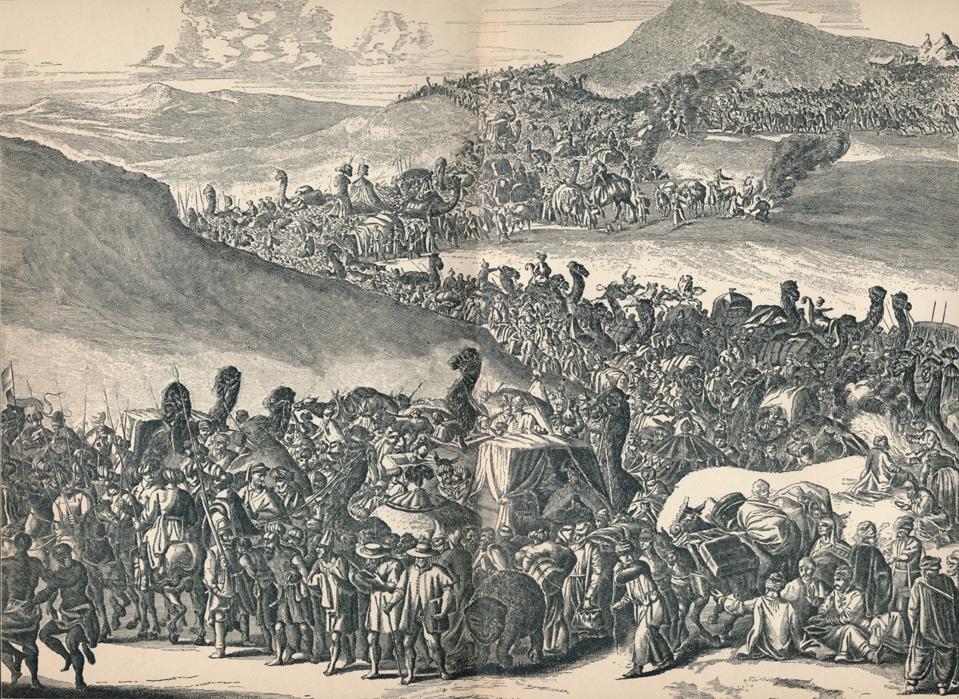By Daina Ramey Berry
What follows is part of a short chronological series on African and African American History. The educational system in the United States does not always offer a balanced history of Africa which is important to our understanding of history and culture in New World communities.
Africa is the birthplace of humanity from which hundreds of civilizations emerged. It is a continent of more than 50 countries, and home to thousands of languages and cultures. Africans lived in complex societies, from small villages to large bustling cities, that contained universities, mosques, and libraries. Some of the world’s most advanced agricultural, scientific, engineering, mining, metallurgy, and medical techniques were developed in Africa long before they appeared elsewhere. The great civilizations that flourished in Africa included Egypt, Kush, Axum, Mali and Great Zimbabwe. From 1100 AD, Timbuktu, situated in present-day Mali, thrived as one of the world’s most important centers of culture, learning and architecture. African civilizations featured vibrant trading economies as well.
Despite this significant history, many American school children matriculate through our educational system with little knowledge of the African past and its significance to world history. African people show up exclusively as enslaved transports to the Americas via the transatlantic slave trade. Our textbooks introduce Africans as victims, using this history as a segue into African American history while ignoring the rich history of their ancestral lives prior to captivity.
As a professor of African American History, who spent years studying the African past and its influence on world culture and history, I often choose to begin my classes with a simple statement: Africans were free before they were enslaved. For some, this is not an epiphany. Others, however, are forced to confront a new reality that goes far beyond the idea that people of African descent were enslaved and received their freedom in the nineteenth century.
Africa’s history is complex and stretches back through centuries of dynasties. Africa contributed to our knowledge and understanding of ancient writings, languages, agriculture and engineering. Its extensive trade system connected the continent with Asia and India, producing a lively exchange of goods such as grains, metals, and gold. Institutions of higher learning such as the University of Timbuktu served as arenas for scholars to share their knowledge with people from all over the world. African peoples were diverse, hailing from both urban and rural societies. Their leaders, including
Mansa Musa, who led a pilgrimage to Mecca in 1324, were some of the wealthiest in world history.
This rich history is beginning to appear in textbooks, enabling children in U.S. schools to learn about the impact of Africa and African people in New World Societies. They are learning about Africans’ long history of freedom prior to captivity and enslavement, and their contributions to world history.
Enslaved Africans relied on their knowledge and beliefs to survive slavery, and their contributions to U.S. culture, society, and economy are evident in every aspect of American life and enterprise. Agriculture, music, art, and culinary developments have been greatly impacted by skills, techniques and ingredients that were brought to the U.S. by enslaved Africans. Some quintessentially “American” inventions, including blue jeans made with indigo dye, were made possible due to African knowledge and practices. Many “American” culinary items, such as Coca-Cola (cola originated from the African kola nut) are African in origin.
Considering the history curriculum that has dominated U.S. classrooms, it’s hardly surprising that so many Americans know so little about African and African American history. Many educators are attempting to change this, implementing a more global approach to history that emphasizes the importance of all cultures and communities to our understanding of the world. The impact this would have on our students, and our society at large, would be significant.

